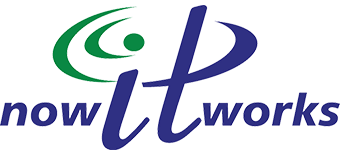- How automation works for small businesses
- Get the most from automation procedures
- How to get started with automation
As someone who runs a small business, thinking about automating some procedures probably produces a splitting headache. After all, you’re already working nonstop to keep everything running smoothly. But if you want to grow your business, minimize cost, and keep your clients happy, you might need to take the leap.
Why You Should Automate Your Small Business
If you’ve shopped online lately, you’ve seen some level of automation. Perhaps you placed an item in your online cart but never bought it. A couple of days later, the company probably sent a follow-up email message reminding you to complete your purchase. Automation controlled the entire process. Why did the company invest to make that happen?
The simple answer is that when you put the item in your online cart the company’s software flagged you as a hot lead. When the item stayed in your cart without a purchase, the system triggered an automated reminder to you. Hot leads are hard to generate, the company saved resources by following up. And automation is much cheaper than having a human employee carry out the procedure.
If you identify procedures in your business that are repetitive, unchanging, and boring, automation can bring the following benefits.
- Minimizes error – Human beings do not handle boring, repetitive tasks well. With time, their rate of making mistakes increases. Mistakes in serving customers loses sales.
- Improves morale – No worker likes being a cog in a machine. People thrive when they can be creative, when they can take some initiative and solve problems. Automated processes free up time for them to do more important and satisfying things.
- Increases efficiency – Keeping track of communications or meetings with clients manually is both time consuming and prone to error. Needed follow-up doesn’t happen. Confusion occurs. Time is wasted. Managing project deadlines becomes difficult. Automation can address all of these challenges.
- Reduces cost – Especially when a business is trying to grow, it becomes important to do more with less. Automating tasks such as data entry, generating routine messages, keeping track of employee schedules and work performed can save money while improving management overall.
Which Procedures You Should Automate
Here are some office procedures to automate. (If you manufacture a product, you already know about automation in your sector.)
There are four major areas that automation improves: customer relationship management (CRM), scheduling and project management, accounting, and human resources (HR).
- CRM – Every business must keep accurate records of their clients or customers. When each department such as sales or marketing must do that separately, errors will occur. Even moving a prospective client to an actual, paying client becomes difficult. Important follow-up contacts won’t happen as they should. Duplicate records will confuse employees.
That’s why an automated CRM system is vital to efficient operations. With such a system, any authorized team member can enter or update client information. Later, other members can access that information, update it as necessary, and carry out other tasks. Further, each client’s contact information provides a basis for automated communications via email, texting, or phone calls. Many companies also establish client portals so that clients can see and retrieve important information concerning their own account. - Scheduling and Project Management – Everyone loses when playing the phone tag game. Only forgotten or missed meetings are worse. Since nearly everyone uses an online calendar, linking them so that appointments appear on all relevant calendars improves efficiency. Rather than the back-and-forth negotiation to set up in-person or virtual meetings, software such as Calendly allows employees to identify times when they are available so that clients or other team members can make an appointment without having to get permission.
Similarly, making sure that project deadlines are met and keeping track of who is doing what often boggles the minds of managers. Project management software automates the process so that everyone on a team, and especially managers, know what is happening at any time. If necessary, tasks can be reassigned in real time. Team members can receive nudges about deadlines. And they can communicate with one another easily. - Accounting – The less human interaction needed in this area, the better. Issuing invoices, collecting payment, sending payment reminders, sending notices of payment received, paying bills, etc., should all be automated. Tracking and maintaining accurate financial records benefits your business and your clients alike. There are many software applications that can manage all of that.
- HR – Many companies have automated at least some of their HR operations. Automated tracking of employee hours and wages that then transfers to automated payroll operations is common. But automation in this area can include many other functions: applications for employment, onboarding, benefits management, employee performance and evaluation, termination, and retirement, etc. Automating these procedures reduces error and promotes better adherence to company policies.
How to Get Started
If you are thinking about beginning to automate your business or automating additional functions, be good to yourself. Start slowly.
Many find that prioritizing which functions, if automated, is the way to begin. Most businesses start by installing a good CRM system. The more robust ones (ActiveCampaign, for example) can combine client recordkeeping with marketing, sales, and other functions.
Since money is important for every business, accounting and financial management might be next on your list. If you have in-house accounting staff or if you outsource your accounting operations, you might already have automated resources in place. Check with your accountant to make sure that your bookkeeping software integrates seamlessly with your accounting program.
Scheduling and project management are important for all small businesses and are difficult to manage without automated help. If you must interact with several clients per day or if you manage teams who service clients in real time, automation is the way to go. Calendly, Monday.com, or Airtable can help keep projects on track and up to date.
Many SMBs find that automating routine HR operations improves the level of service they can provide to their employees. It can also give employees more choice regarding benefits or working conditions—an especially important factor in today’s hybrid or remote working environment. A recent article, “State of Small Business HR: SMBs Embracing HR Technology Better Positioned to Navigate Great Resignation,” provides a good summary.
Things to Remember
When you decide to add automation to your company’s bag of tricks, bear in mind that the process will be gradual. You might not notice measurable results quickly. For example, improved customer service that automated processes enable might bring new customers over time rather than overnight.
You will also need to build in time to train your team when you introduce a new way of doing things. When they learn how to get the most out of new software or automated methods of managing projects, their job satisfaction and morale is likely to improve over time.
Finally, selecting which operations to automate and the software packages to do so might overtax yourself or your IT team. In such circumstances, Now IT Works has your back. We can help with vendor selection, installation, and training to make sure that your operations function smoothly. Get in touch to get started.

